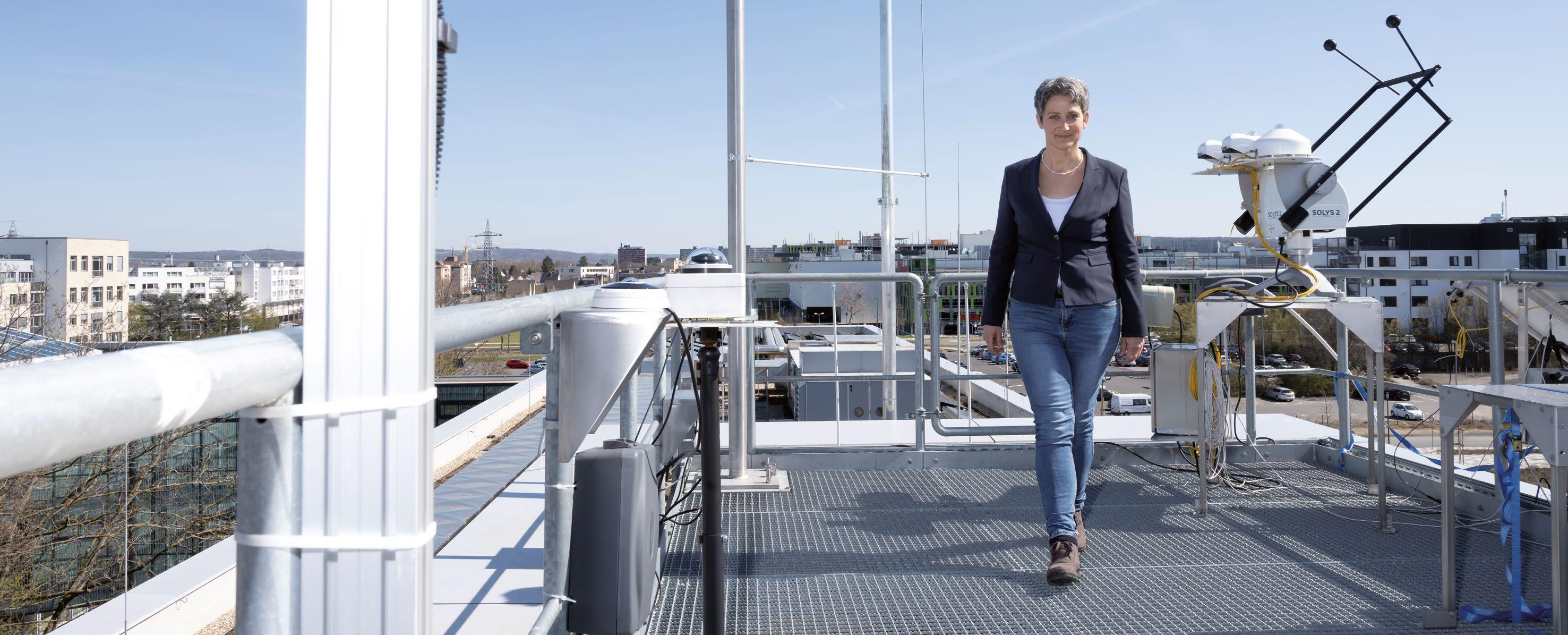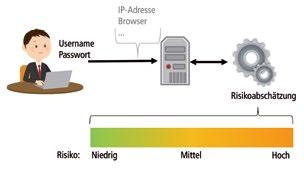
4 minute read
How online teaching succeeds
Prof. Dr Stefanie Meilinger
researches sustainable technologies, especially renewable energy systems
In view of the climate crisis and the challenges it poses, my stance is clear – we must act! In order to do so, we must consider from the very outset how the production and implementation of the new technologies we are developing will impact the environment. For this reason, we ask ourselves and our students in research and teaching how we can include and factor in these potential ecological and social consequences. The university has taken a pioneering step in this direction with its Bachelor’s and Master’s programmes in Sustainable Engineering as well as with the International Centre for Sustainable Development and the Responsibility Forum. The university is committed to contributing to the sustainable development of our society. It is imperative that we continue in this direction, even if new, seemingly more pressing issues push themselves to the fore. I believe that putting sustainability first is crucial for the survival of humankind. I stand up for this cause and ensure that it is not forgotten.
Earning a doctorate with applied research
The applied research projects of Ina Neher and Stephan Wiefling offer approaches to solving social challenges
Solar-powered energy systems in West Africa
Vividly to the point: PhD student Stephan Wiefling visualises his research results Ina Neher investigated the influence of the atmosphere on the operation and expansion of solar-powered energy systems for her doctoral project, completed in 2020, at the International Centre for Sustainable Development (IZNE). She looked at the influence of aerosols in the air, focusing on the region of West Africa – from the desert area in northern Niger to the southern coastal regions. The entire region is repeatedly struck by violent Sahara storms, causing solar energy production to collapse. Her research was based on meteorological data from 2006, which included a dust event lasting several days, and high-resolution satellite data from over 35 years of recording. “The energy yield is higher in the desert region, but more energy is needed on the populous coast. To secure the energy supply long term, the power grid should be expanded in a northsouth direction”, Neher recommends.
Pioneering research on password security


Stephan Wiefling also has recommendations. He is a doctoral student in the URIA project (Usability of Risk-based Implicit Authentication) in the NERD.NRW research training group as well as a member of the Data and Application Security (DAS) group led by Professor Luigi Lo Iacono at H-BRS. In the long term, small and medium enterprises are to benefit from his research on secure passwords. Their knowledge of the risk-based authentication (RBA) researched by Wiefling, i.e. asking for a second identification factor in the case of unusual log-in behaviour, cannot keep up with that of the tech giants.
“The goal of my work is to increase the security of password authentication without increasing the effort required by users”, Wiefling explains. If every online service can use RBA, everyone is better protected. Wiefling studied the use of RBA in large online services for a good three years and researched its user-friendliness. Wiefling presents his research on complex RBA technology at major conferences and receives considerable recognition on the international scene. Bruce Schneier, a US expert on IT security, has even shared one of Wiefling’s studies on his blog.
Solidarity in the health system
How health apps impact users’ views on the health insurance system
From running and weight training to yoga – a broad range of sports can be tracked on wearables and fitness apps. And this pays off. According to a study by Statista, almost one in three Germans was already using a digital tool to document their own fitness back in 2019. Corona crisis and working from home have accelerated this trend.
But in the long term, how does this behaviour change a society whose health insurance system is based on the principle of solidarity – the contributions of the healthy also finance the cost-intensive care of the ill? This question is being investigated by the team led by Professor Remi Maier-Rigaud from the Department of Social Policy and Social Security Studies. On behalf of the Friedrich-Ebert Foundation, the social scientist, together with Sarah-Lena Böning from the University of Cologne, conducted an analysis of the survey results of about 1,300 people. The researchers’ hypothesis is – the use of health apps, fitness trackers and other wearables decreases an individual’s willingness to show solidarity.
Gamification of health
The study shows that around three quarters of the population are in fact in favour of a solidarity-based health insurance system. However, a tendency to reject this system can clearly be discerned amongst health app users. “It seems that increasing knowledge and control over one’s own fitness leads to declining acceptance of a solidarity-based health system”, explains Maier-Rigaud.
As with the already existing bonus programmes of the health insurance providers, users who take advantage of digital health opportunities expect to be rewarded for their own performance. This gamification is reinforced by social media platforms where people compare themselves to others. “Fitness apps can certainly be helpful in achieving individual goals”, says Maier-Rigaud. But the social scientist has reservations about their adoption by society as a whole. “Apps create social pressure that not everyone can live up to. What exactly constitutes a healthy lifestyle? Not everyone is able to walk 10,000 steps five times a week in every situation, but that doesn’t necessarily mean that a person is living an unhealthy life. Just think of socio-politically vulnerable groups such as single parents or wheelchair users. Ultimately, everyone should be free to make their own lifestyle choices.”










